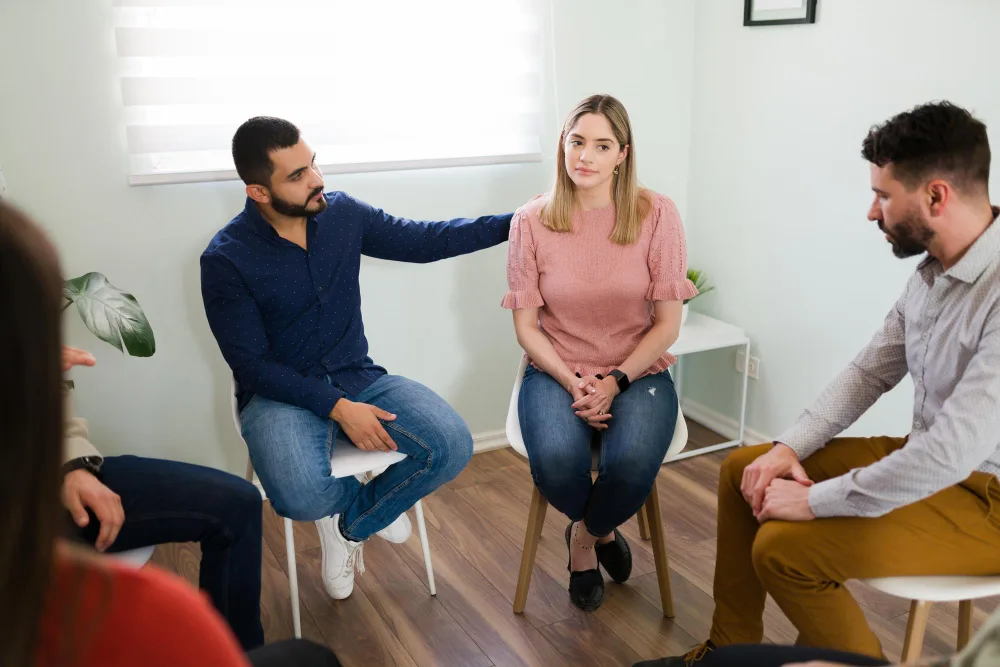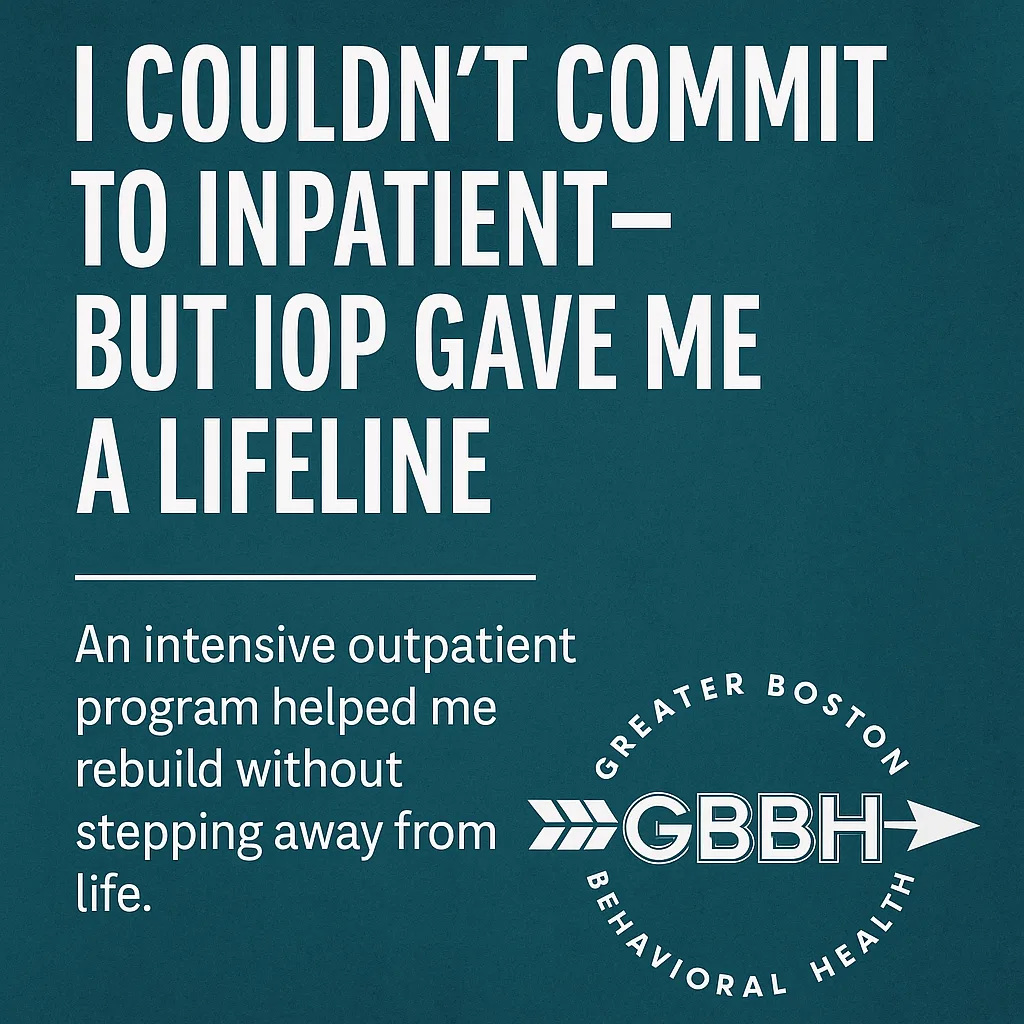I wanted help. Badly. But the idea of inpatient treatment stopped me cold.
Leaving for 30, 45, or 60 days? Impossible. My life was already hanging by a thread. If I stepped away, it felt like everything would collapse—work, family, rent, even my dog. I wasn’t just afraid of getting help. I was afraid of losing everything I’d worked to barely hold together.
That’s why I’m writing this. Because if you’ve been stuck in that space—knowing you need help but feeling trapped by life—an intensive outpatient program (IOP) might be the answer you didn’t know existed. IOP gave me breathing room. It gave me tools. And most importantly, it gave me a lifeline without taking away my whole life.
What Is an Intensive Outpatient Program, Really?
Before I stepped into IOP, I thought treatment was an all-or-nothing deal: either inpatient or nothing.
Turns out, intensive outpatient programs are built for people who can’t drop everything but still need structured, real help. Here’s what I learned:
- 3–5 days a week of therapy, typically 3 hours per session.
- Morning or evening groups so you can still work, parent, or take care of life.
- A mix of individual therapy, group therapy, and skills-building sessions.
- You go home after sessions. You sleep in your own bed.
It wasn’t a watered-down version of care—it was the first treatment plan that fit my life.
At Greater Boston Behavioral Health, they offer flexible IOP programs in Boston, MA, with options for both mental health and substance use support.
Why IOP Was the First Program That Actually Worked for Me
IOP worked because it didn’t ask me to hit pause on my life. Instead, it taught me how to live while healing:
- I practiced new coping skills in real life, not just in a bubble.
- I learned to deal with triggers while still handling work deadlines and family stress.
- I built accountability into my week, without feeling trapped in a facility.
IOP felt like training wheels for my mental health, not a punishment or a forced timeout.
IOP Helped Me See That Needing Flexibility Isn’t Failure
There’s this weird lie floating around that if you can’t do inpatient, you’re “not serious” about recovery. That’s garbage.
Here’s the truth: everyone’s situation is different. For me, getting to IOP was the most serious decision I’d made in years. It meant I cared enough to show up even when life felt overwhelming. It meant I wanted help badly enough to fight for a version of care that worked for me.
And I’m not alone. Many people thrive in IOP because it meets them where they are—especially in Boston, MA, where life doesn’t slow down for anyone.
How IOP Helped Me Build Real-Life Recovery Skills
One of the best parts of IOP? It didn’t just help me survive—it helped me function better:
- Boundary-setting became a practice, not just a concept.
- I learned how to check my emotional temperature before spiraling out.
- I got comfortable asking for help, even outside of treatment.
- I rebuilt my week around healthier rhythms, not survival mode.
If you’re curious about options, Greater Boston Behavioral Health’s intensive outpatient program focuses on these real-life skills because they know recovery doesn’t happen in a vacuum.
You Can Leave and Come Back—The Door Is Always Open
Confession: I dropped out once. Life got messy. I ghosted my group and ignored the check-in calls.
When I finally worked up the nerve to reach back out, I was met with compassion, not punishment. No guilt trips. No lectures. Just, “We’re glad you called—how can we support you?”
That’s the power of IOP. It understands life isn’t linear. Progress isn’t perfect. At Greater Boston Behavioral Health, you don’t get one chance to get it “right.” You get as many chances as you need.
What to Expect from Greater Boston Behavioral Health’s IOP
If you’re in Boston, the intensive outpatient program at Greater Boston Behavioral Health offers:
- Flexible scheduling, including mornings and evenings.
- Licensed therapists who actually listen—not robots reading scripts.
- Evidence-based therapies, including CBT, DBT, and trauma-informed approaches.
- A nonjudgmental, welcoming environment, whether it’s your first time or your fifth.
Plus, if you’re near Dedham, there’s IOP care available closer to you.
Quick Tips for Making IOP Work for You
Quick Tips for Starting IOP:
- Show up, even on bad days—those are the sessions that help most.
- Be honest, especially when you’re struggling.
- Use your therapist to troubleshoot real-life problems.
- Give yourself grace, especially if you ghosted before.
- Remember: You’re allowed to keep coming back.
Frequently Asked Questions About IOP
Is IOP less effective than inpatient treatment?
Not at all. IOP is designed for people who need real care but can’t step away from life completely. For many people, it’s just as effective, especially if you have a stable home environment.
How long does IOP last?
It varies. Most programs run 6–12 weeks, with flexibility based on your needs. At Greater Boston Behavioral Health, your treatment team will help you figure out what’s best.
Can I work while attending IOP?
Yes—that’s the point. IOP is scheduled around life. With morning and evening sessions, you can work, parent, and take care of responsibilities while still getting solid support.
What happens if I miss a session?
Life happens. Good programs—including Greater Boston Behavioral Health—know that. You won’t be kicked out for missing a session. Just be honest, stay in communication, and come back.
What’s the difference between IOP and PHP?
PHP (Partial Hospitalization Program) is more intensive—usually 5 days a week, 6+ hours a day. IOP is a step down, typically 3–5 days a week, 3 hours a session, offering more flexibility while still providing structure.
You Deserve Help That Fits Your Life
If inpatient feels like too much, that doesn’t mean you’re out of options. Intensive outpatient treatment could be the bridge you’ve been looking for—it was for me.
Call (888) 450-3097 or visit Greater Boston Behavioral Health’s intensive outpatient program to explore how you can get real support that fits into your real life. If you’re local to Newton, Dedham, Needham, Wellesley, or Boston, Massachusetts, GBBH offers help that meets you exactly where you are.


